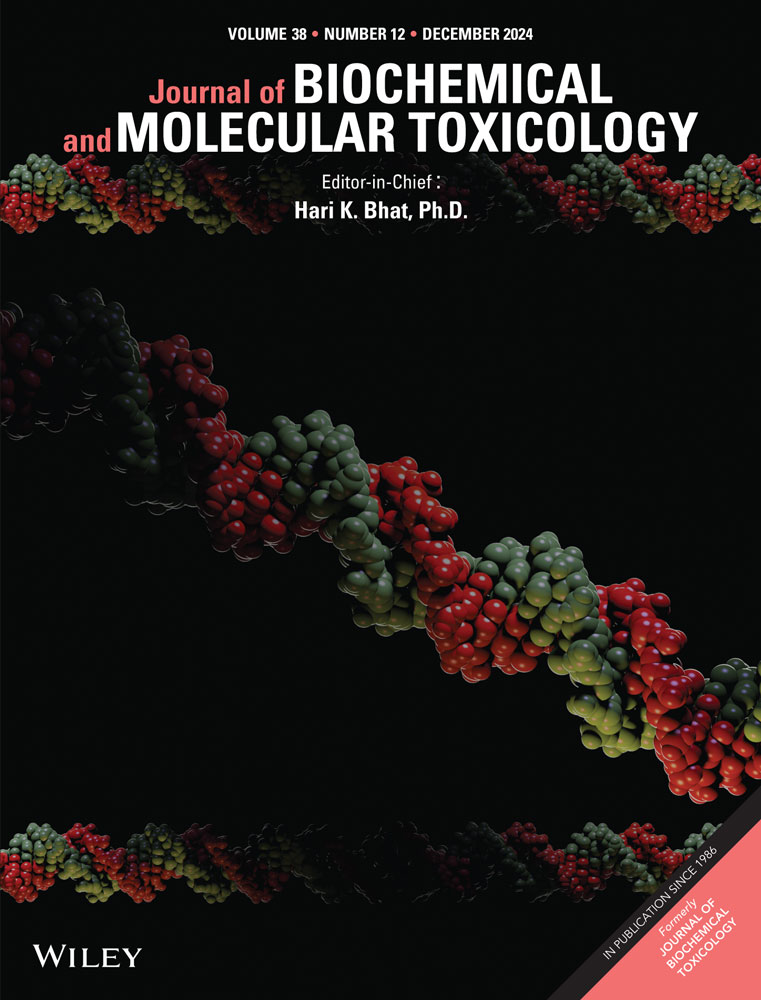基于网络药理学的Iguratimod通过NF-κB抑制关节炎机制的实验研究
IF 3.2
3区 医学
Q2 BIOCHEMISTRY & MOLECULAR BIOLOGY
引用次数: 0
摘要
我们研究了Iguratimod (IGU)抑制关节炎的机制。IGU可以抑制滑膜巨噬细胞的炎症反应,降低炎症因子水平和NF-κB信号传导。在动物实验中,IGU可抑制小鼠关节炎损伤,降低组织炎症因子水平,改善小鼠活动能力,抑制NF-κB信号传导。IGU可以靶向NF-κB信号通路抑制滑膜巨噬细胞的炎症反应,从而减轻关节炎和关节损伤,这是IGU治疗关节炎的重要机制。本文章由计算机程序翻译,如有差异,请以英文原文为准。
Research on the Mechanism of Iguratimod in Inhibiting Arthritis Through NF-κB: An Experimental Study Based on Network Pharmacology
We investigated the mechanism by which Iguratimod (IGU) inhibits arthritis. IGU can inhibit inflammatory responses in synovial macrophages, reducing the levels of inflammatory factors and NF-κB signaling. In animal experiments, IGU can suppress mouse arthritis damage, decrease the levels of inflammatory factors in tissues, improve mouse mobility, and inhibit NF-κB signaling. IGU can target NF-κB signaling to inhibit inflammatory responses in synovial macrophages, thereby alleviating arthritis and joint damage, which is an important mechanism for IGU in the treatment of arthritis.
求助全文
通过发布文献求助,成功后即可免费获取论文全文。
去求助
来源期刊
CiteScore
5.80
自引率
2.80%
发文量
277
审稿时长
6-12 weeks
期刊介绍:
The Journal of Biochemical and Molecular Toxicology is an international journal that contains original research papers, rapid communications, mini-reviews, and book reviews, all focusing on the molecular mechanisms of action and detoxication of exogenous and endogenous chemicals and toxic agents. The scope includes effects on the organism at all stages of development, on organ systems, tissues, and cells as well as on enzymes, receptors, hormones, and genes. The biochemical and molecular aspects of uptake, transport, storage, excretion, lactivation and detoxication of drugs, agricultural, industrial and environmental chemicals, natural products and food additives are all subjects suitable for publication. Of particular interest are aspects of molecular biology related to biochemical toxicology. These include studies of the expression of genes related to detoxication and activation enzymes, toxicants with modes of action involving effects on nucleic acids, gene expression and protein synthesis, and the toxicity of products derived from biotechnology.

 求助内容:
求助内容: 应助结果提醒方式:
应助结果提醒方式:


